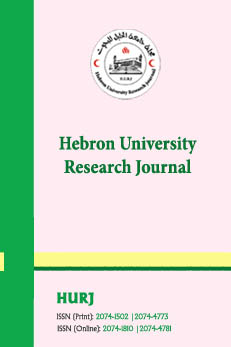News Archive
Hebron University Participated in the International Conference on Legislative Drafting in Washington
Hebron, Palestine—13 March 2013, the Legal Clinic of Hebron University participated in the First International Conference on Legislative Drafting and Law Reform which took place on 8 and 9 March 2013 in Washington, DC. The conference, which was organized by the US Federal Bar Association and the International Judicial Academy as we as the International Journal of Legislative Drafting and Law Reform, was attend by experts on legislative drafting and legal reform from various parts of the world. Dr. Mutaz Qafisheh, Professor of International Law and Legal Clinic Director, presented a paper entitled 'Legislative Drafting in Transitional States: The Case of Palestine.'
The conference addressed a number of topics, including statutory interpretation and legislative drafting, role of Islamic law in the interpretation of constitutions in the Arab world, legal reform activities in community legal education, comparison of legislative drafting in the United States and European Union, teaching skills and techniques of legislative drafting, technology and legislative drafting, drafting of environment, security and criminal laws and regulations, and the role of legislative drafting in law reform, with special reference to transitional states.
In his paper on legislative drafting in transitional societies, Dr. Qafisheh spoke about the Palestinian experience on legislative drafting since the Oslo accords until the present. The paper presented an example on how new states might start legislating from scratch and gradually develop a system that could function despite the extreme challenges, even under foreign occupation and limited technical and financial resources. It started by describing the legislative process in Palestine, with focus on the drafting of parliamentary statutes. It then introduced the legislative drafting techniques as reflected in the ‘Legislative Drafting Manual,’ a guide currently in use by the parliament and administrative institutions. It concluded by highlighting the achievements and pitfalls that characterized the Palestinian legislative drafting journey over the past twenty years.





